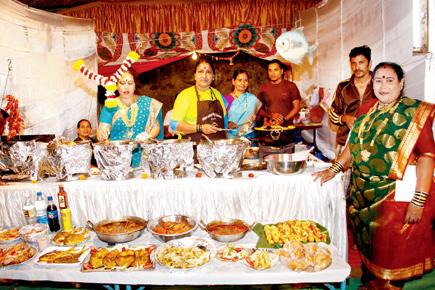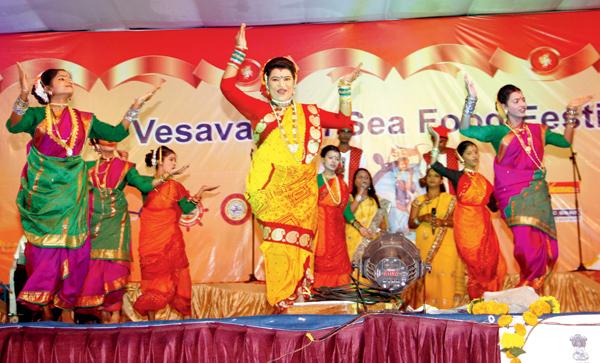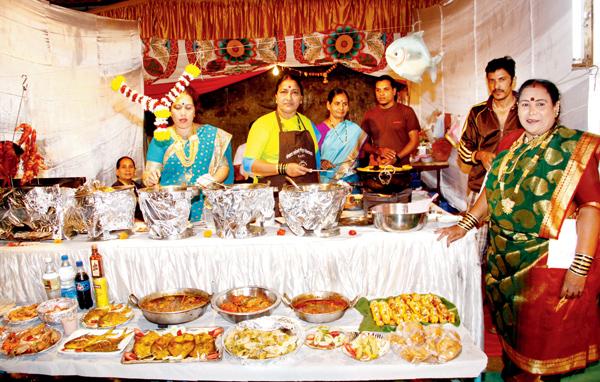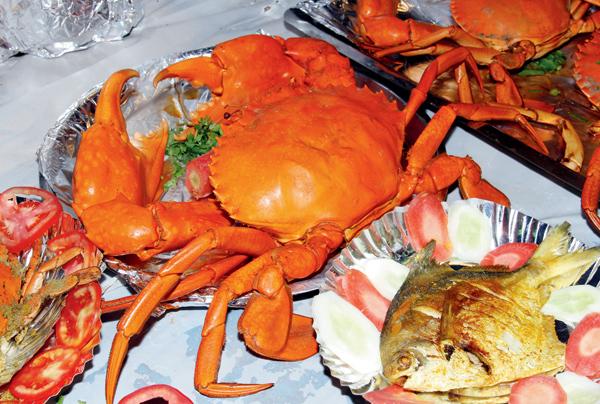From unique fare like Bamboo Ka Bombil to authentic king prawn and lobster dishes, celebrate indigenous Koli cuisine and culture at the Versova Koli Seafood Festival

Versova fest
If you love seafood or are keen to know more about Mumbai’s oldest inhabitants, the Kolis, head to the Versova Koli Seafood Festival that begins this weekend at Andheri (W). Organised by the local charitable trusts, the annual three-day affair celebrates the culture, tradition and cuisine of Versova’s Koli community. The nine-year-old event has grown into a large-scale event with loads to offer. “In the last few years, we’ve witnessed over 20-25,000 footfalls each day. This year, we have set up 45 stalls that will serve authentic seafood varieties,” informs Devendra Kale, the chairman of the festival. Interestingly, this festival involves participation of over 100 Koli womenfolk, who prepare all the dishes that are served at the stalls.
ADVERTISEMENT

A traditional Koli dance performance
What’s cooking?
This year, you can relish over 20 varieties of fish including Pomfret, Surmai, Basa, Mackerel, Tuna, Ghol, Shellfish, Mandeli (Golden Anchovies), Rani (deriving its name from its pink colour) and Bombil (Bombay Duck) as well as crustaceans like king prawns, lobsters and crabs. “We only use fresh catch brought in by Versova’s fishermen. Each stall sells usually 1 ton of seafood. All the varieties are cooked live in front of the patrons and taste just like what we make in our homes. Also, the prices range from Rs 50 to Rs 150, which is cheaper than restaurant rates,” adds Kale.

Women serving Koli fare at last year’s edition of the Versova Koli Seafood Festival
One of the unique dishes served here is tangy and spicy Bamboo Ka Bombil, made using semi-dry Bombay Duck cooked in traditional Koli masala. “This dish is available only at our festival. We dry the fish only for two hours and then cook it. We will also serve rice chapatis (chapatis made from rice flour) and stuffed bananas filled with dry fruits,” says Sarika Foka, one of the participants at the festival.
Apart from food, dance and cultural programmes will also be a part of this festival. “Every evening, we organise dance competitions where participants deck up in ethnic outfits and move to the tunes of traditional Koli music,” says Kale.

Crab Masala and Pomfret Fry
Success = sale
While the main objective of the festival is to introduce Koli cuisine to the patrons it also helps the business of the fisherfolk of the village. Kale elaborates, “Our business is dependent on this festival. Every year, post the festival, we see a rise of about three to four percent in our sales.” Moreover, women also benefit from this fest. “They receive bulk home orders from people across the city through this festival,” shares Foka, before she trails off to prepare for the three-day extravaganza.
 Subscribe today by clicking the link and stay updated with the latest news!" Click here!
Subscribe today by clicking the link and stay updated with the latest news!" Click here!






